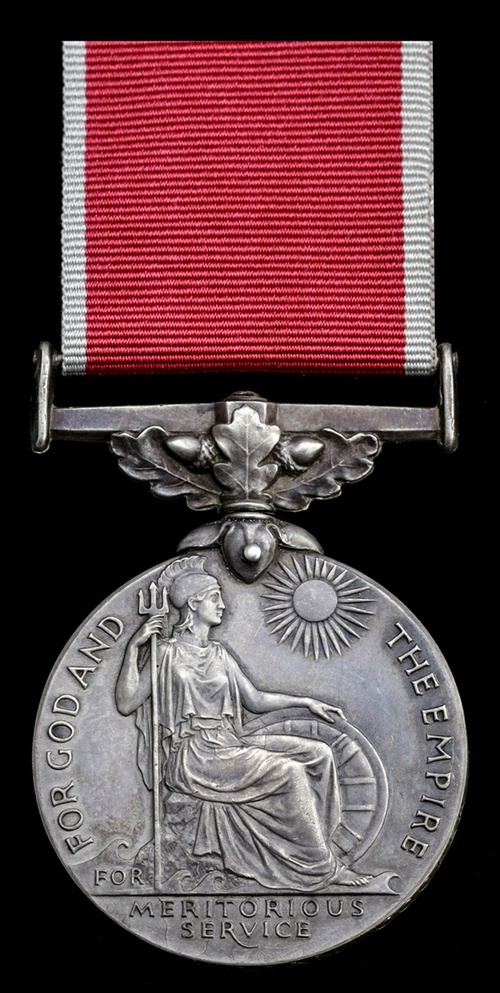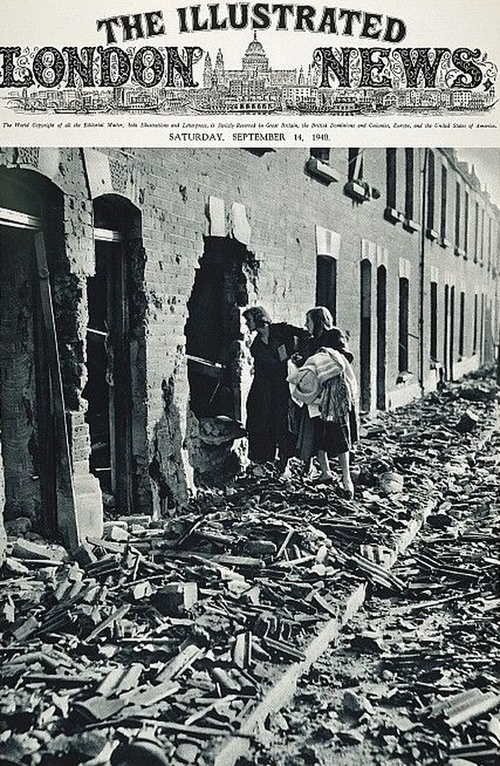Auction: 17003 - Orders, Decorations and Medals
Lot: 707
'Len Jones spent the night of Saturday 7 September 1940 in a brick-built public shelter in Poplar, east London, which "lifted and moved, almost as if it was a ship in a rough sea. And the suction and the blasts were coming in and out of the steel door, smashing backwards and forwards, bashing us against the walls … The worst part was the poor little kids, they were screaming and crying and clutching their parents. The heat was colossal; the steel door was so hot you couldn't touch it. And everybody was being sick, and people were having to carry on their normal bodily needs, and the smell was terrible." '
A Daily Telegraph 'London Blitz Anniversary' article, by Juliet Gardiner, 7 September 2010, refers.
A 'First Night of the London Blitz' B.E.M. awarded to George Cooper, a Horse Foreman for Great Western Railway
It was at Poplar in the East End - as the bombs rained down on the night of 7 September 1940 - that 54 year old Cooper extinguished several incendiaries and prevented the destruction of his employer's stables and 36 horses
British Empire Medal, Civil Division, G.VI.R. (George William Cooper), officially engraved naming, good very fine
B.E.M. London Gazette 24 January 1941. The original recommendation states:
'At about 5.30 p.m. on Saturday, 7 September 1940, an intensive air raid commenced in the East London Docks area. Horse Foreman Cooper, although off duty at the time, realised that Poplar Goods Station was likely to be quickly involved and, accordingly, he made his way to the stables through heavy gunfire and bombing from enemy planes.
Although big fires were raging in all directions and getting worse as time progressed, Cooper remained at the stables and with the assistance of his three men extinguished several incendiary bombs which fell through the stable roof.
At 11.30 p.m. it appeared almost certain that the stables would be involved in the fore, and orders were received from the Chief of the Fire Brigade to evacuate immediately the 36 horses stabled therein. Cooper, who had taken the initiative from the start, had already prepared the horses for removal and had smashed down the gates leading to the premises of the Port of London Authority to make an emergency exit, the railway bridge under which the horses would otherwise have had to be led being on fire and seemed likely to collapse. Later, however, the fire on the bridge was got under partial control, and all the animals were led underneath and tied up on trucks on the coal siding for the night.
Until the horses were found stabling accommodation elsewhere Cooper and his three men remained on duty until Sunday evening, the Sunday night period being covered by the same four men in shifts.
Bombing was constant from 5.30 p.m. on Saturday and throughout that night and again the following night, and the combined efforts of Cooper and his three men saved the 36 horses and the stable premises from destruction.'
George William Cooper was born in 1886 and commenced his career in the Great Western Railway as a horse keeper at the company's premises on the Victoria and Albert embankment in 1905. By the time of his heroics on the first night of the 'London Blitz', he was employed as a Horse Foreman and residing at Trinity Street in Canning Town.
Subject to 20% VAT on Buyer’s Premium. For more information please view Terms and Conditions for Buyers.
Estimate
£400 to £500







